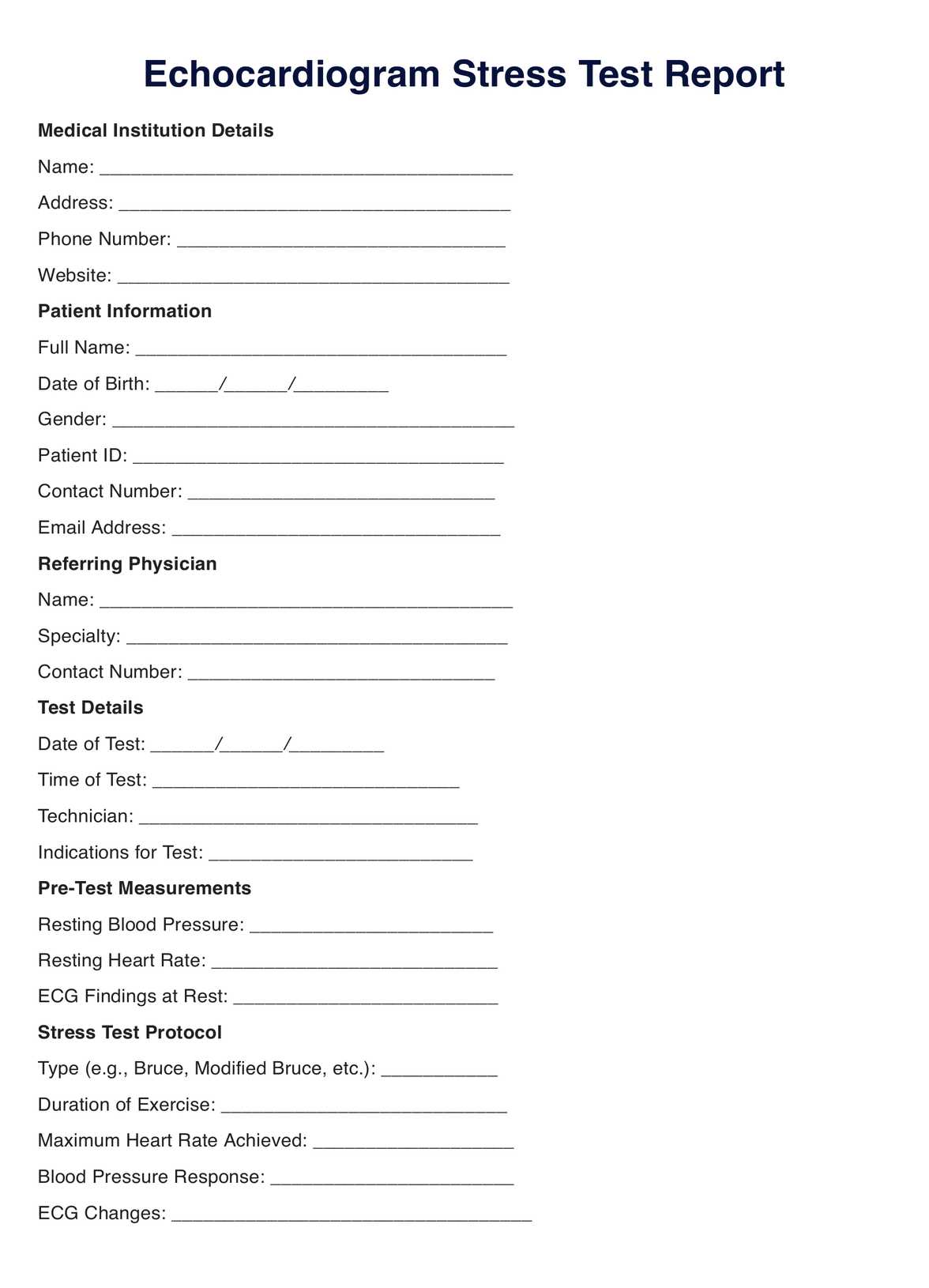Cardiologists or primary care physicians may request this test for patients showing symptoms of heart disease.

Echocardiogram Stress
Discover our echocardiogram stress test PDF guide and learn how stress echocardiography can aid in cardiac assessment and diagnosis.
Use Template
Echocardiogram Stress Template
Commonly asked questions
Echocardiogram Stress Tests are used when there is a need to evaluate the heart's function during physical stress.
Echocardiogram Stress Tests diagnose coronary artery disease, assess treatment effectiveness, and evaluate exercise tolerance.
EHR and practice management software
Get started for free
*No credit card required
Free
$0/usd
Unlimited clients
Telehealth
1GB of storage
Client portal text
Automated billing and online payments











